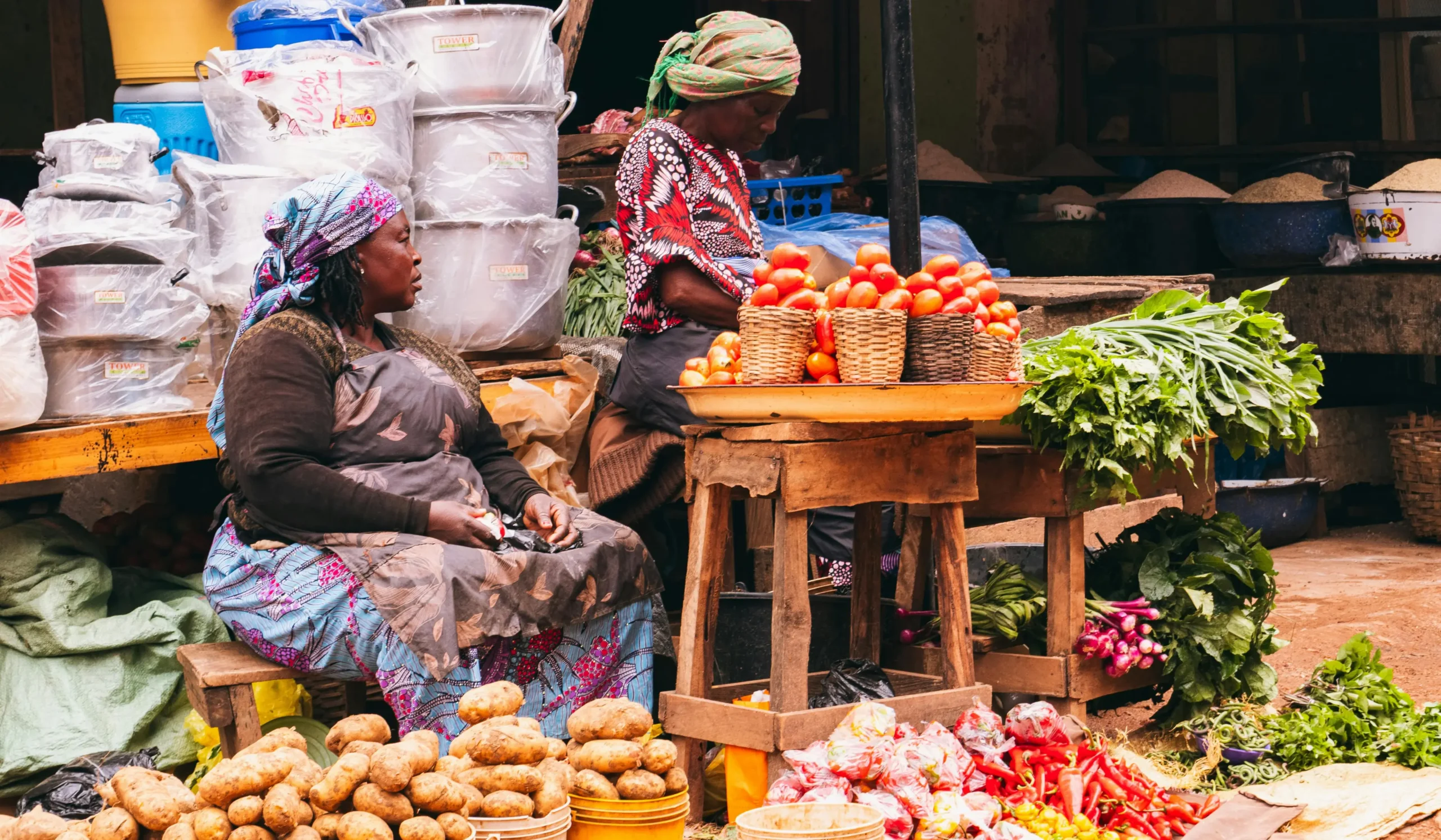President Bola Tinubu has ordered the Bank of Agriculture (BOA) to immediately settle N30 billion in outstanding debts owed to agro-dealers and input suppliers under the National Agricultural Growth Scheme and Agro-Pocket (NAGS-AP).
The move, according to officials, is part of a broader effort to strengthen Nigeria’s agricultural sector, ease bottlenecks in funding, and safeguard the country’s food supply chain.
The directive follows the release of fresh funding from the African Development Bank (AfDB), earmarked to offset long-standing arrears tied to the 2024 dry and wet season farming programmes.
With this development, the BOA has also been formally designated as the custodian of all federal agricultural financing programmes, effectively positioning the bank at the centre of Nigeria’s drive for food security.
Bank of Agriculture Given Central Role
The BOA, in a statement issued through its External Media Relations Lead, Judith Ekwebelem, described the president’s directive as a turning point for the sector. The bank pledged to execute the repayment schedule swiftly, leveraging its electronic wallet system to make payments to all verified agro-dealers within 24 hours. Weekly updates are also expected to be provided until the exercise is completed.
“This directive represents a significant shift in how the government addresses agricultural financing,” the statement read. “It ensures critical stakeholders in food production receive timely support, eliminating delays that often frustrate farmers and suppliers.”
The N30 billion marks the second tranche of funds released by AfDB under the NAGS-AP framework. The scheme is designed to increase farmer access to inputs such as seeds, fertilisers, and agrochemicals, thereby boosting productivity and ensuring a stable food supply across the country.
Finance Ministry Declares Priority
Minister of Finance and Coordinating Minister of the Economy, Wale Edun, underscored the importance of the initiative, directing that the process be treated with “the highest priority.” Officials confirmed that the NAGS-AP Secretariat and BOA began the payment exercise on September 18, 2025, after formally receiving beneficiary data.
The BOA’s Managing Director and Chief Executive Officer, Ayo Sotinrin, described the appointment of the bank as custodian of agricultural funds as a historic responsibility. He stressed that the effort was not merely a financial transaction but a bold step toward ensuring Nigeria’s food sovereignty.
“This is a defining moment for our agricultural sector,” Sotinrin stated. “By working closely with the NAGS-AP team, we are bypassing bureaucracy to channel funds directly to agro-dealers and suppliers. The goal is to unlock opportunities for farmers, helping them move from subsistence farming to sustainable and profitable agribusiness.”
Conditions for Beneficiaries
The BOA outlined specific requirements for agro-dealers and suppliers seeking to benefit from the debt settlement programme. All pre-qualified and registered beneficiaries must open an account with the bank, which it describes as a mandatory step for processing claims. The registration process is free and can be completed online.
Sotinrin urged all eligible parties to comply promptly to avoid unnecessary delays. “Beneficiaries who fail to complete the required steps risk setbacks in processing. We urge them to act quickly so payments can be disbursed without interruption,” he said.
Broader Commitment to Agricultural Reform
The debt repayment directive comes against the backdrop of President Tinubu’s wider economic reforms and international engagements aimed at boosting agriculture.
During a recent bilateral meeting with Brazilian President Luiz Inácio Lula da Silva, Tinubu reiterated his administration’s determination to remove obstacles hindering agricultural development.
He highlighted Nigeria’s competitive advantage in the sector and assured his Brazilian counterpart that reforms were underway to reposition agriculture as a driver of both domestic food sovereignty and international trade.
Bureaucratic delays, Tinubu acknowledged, had long slowed the sector’s growth, but he stressed that such barriers would no longer be tolerated.

Significance for Food Security
Agriculture accounts for a substantial share of Nigeria’s economy and employs a significant portion of its population. However, inefficiencies in financing, inconsistent policies, and inadequate infrastructure have long hampered growth.
By placing BOA at the heart of agricultural financing and moving swiftly to clear the arrears owed to input suppliers, the government aims to restore confidence among key stakeholders.
Experts note that clearing the backlog of payments is not only about settling debts but also about reinforcing trust in government-backed programmes.
Farmers and suppliers who often experience long delays in receiving payments may now have renewed confidence to participate in government initiatives.
“This intervention could mark a turning point,” said one agricultural analyst. “Timely access to funds and inputs can directly impact yields, improve food availability, and contribute to stabilising prices. The ripple effect on rural communities, employment, and national food security cannot be overstated.”
Electronic Wallet System as Key Tool
The BOA’s commitment to leveraging its electronic wallet system for payments signals a shift toward more transparent and efficient disbursement methods. The platform, designed to cut down on fraud and reduce bureaucratic red tape, enables direct transfer of funds to registered beneficiaries.
By reducing human interference in the payment process, the bank hopes to deliver on Tinubu’s vision of eliminating bottlenecks in the agricultural value chain. Weekly progress updates will also provide a layer of accountability, ensuring that stakeholders remain informed throughout the disbursement period.
Next Steps
The N30 billion disbursement is expected to cover arrears from the 2024 dry and wet season programmes, paving the way for a more seamless rollout of future farming cycles.
With BOA now holding custodial authority over all agricultural programme funds, stakeholders anticipate more coherence in financing and less fragmentation across multiple agencies.
Sotinrin emphasised that this alignment would allow Nigeria to build a stronger agricultural base, one that moves beyond subsistence farming. “Our goal is to transform agriculture into a profitable venture that contributes meaningfully to the national economy,” he said.
The success of this directive, observers argue, will depend on sustained political will, adherence to transparent processes, and active participation from farmers and suppliers. If effectively implemented, the move could set a precedent for addressing long-standing challenges in agricultural financing.
A Step Toward Sovereignty
Tinubu’s administration has consistently framed food security as a matter of national sovereignty. The president has argued that a country dependent on imports for its basic food needs remains vulnerable to global shocks and inflationary pressures.
By strengthening the agricultural sector through targeted interventions like the N30 billion debt clearance, the government aims to reduce reliance on imports and enhance Nigeria’s standing in the global agricultural market.
While challenges remain, including insecurity in farming areas, infrastructure gaps, and climate change, the latest directive reflects a clear intention to tackle systemic issues head-on.
The BOA’s expanded role, combined with international support from partners like the AfDB, suggests that Nigeria is laying the foundation for a more resilient agricultural economy.
For many stakeholders, the measure is long overdue but nonetheless welcome. As one agro-dealer put it, “When payments are delayed, it creates a chain reaction that affects everyone from suppliers to farmers and, ultimately, consumers. Clearing these debts sends a message that the government is serious about agriculture.”

